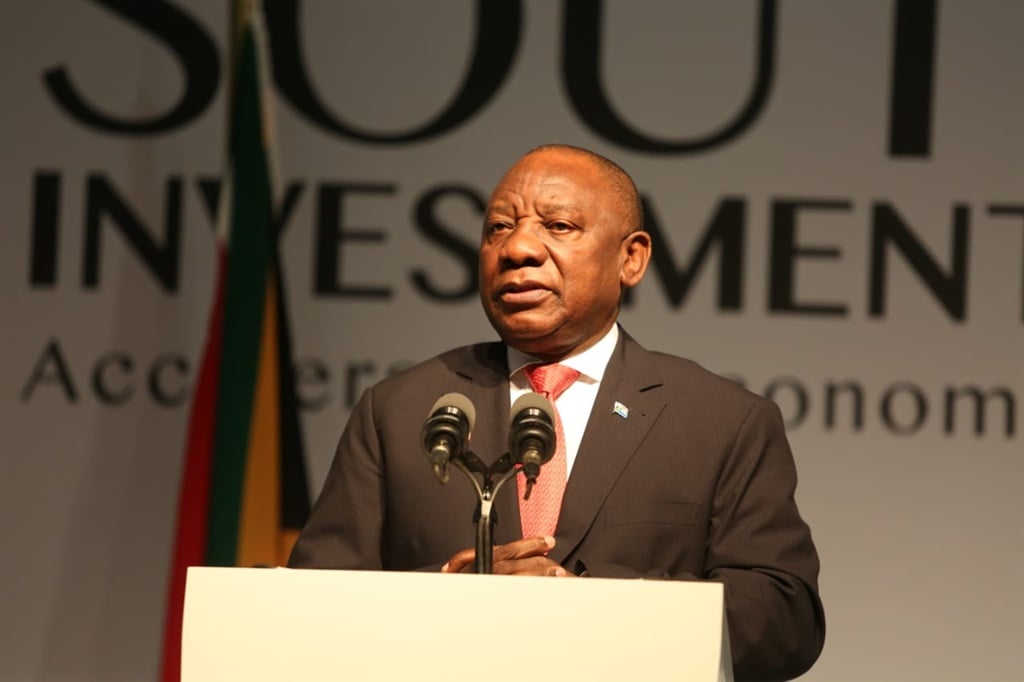
'We treated our entrepreneurs and businesspeople… like enemies, and white monopoly capital, and all that. That must end today.' – President Cyril Ramaphosa, 26 October 2018
In January 2016, shortly after a failed coup attempt on National Treasury by former president Jacob Zuma, Lord Timothy Bell, adviser to former British prime minister Margaret Thatcher, and Victoria Geoghegan, a smart spin doctor working for Bell's outfit Bell Pottinger, jetted into Johannesburg.
On their agenda was a meeting with South Africa's number one family, the Zumas, and their best friends, the Guptas.
Public versions of this meeting suggest it was attended by Zuma senior, Duduzane Zuma, his son, the Gupta brothers, Bell and Geoghegan.
The official purpose of the meeting was to devise a campaign for the Zuptas around economic empowerment of black people that would highlight "economic apartheid" as a stumbling block that still exists 20+ years after political emancipation.
A noble campaign, thus. But why did Zuma need a British PR firm to drive this message home when he had access to the entire state and ANC communications machinery?
The unofficial purpose of the meeting was of course to devise a campaign that would divert the South African public's attention away from unfolding revelations about pervasive state capture by the Zuptas, particularly in the state-owned enterprises, the Free State and North West.
A further aim was to rehabilitate Duduzane Zuma's image as a delinquent and to ensure that Nkosazana Dlamini-Zuma wins the 2017 ANC leadership race to succeed her former husband and father of her children.
Thanks to the Gupta leaks, we know what transpired at these meetings and that this was ground zero for the birth of the phrase "white monopoly capital", popularly known as "WMC".
The campaign was destructive and divisive in ways that are yet to be determined. Future scholars will study the impact of the WMC campaign on the South African psyche and how it successfully turned attention away from the large-scale looting by the Zuptas and their cronies.
To a large extent, part one of the project was successful. The term WMC caught fire in South Africa's chattering classes and was (and is) used as a derogatory term to describe a businessperson or company that existed under apartheid or colonialism.
The reason for the success of the campaign is simple. 24 years after democracy, South Africa remains a deeply unequal society where the majority of black people have not yet benefitted financially from their political emancipation.
Add to that the skewed ownership patterns of private business in favour of white people, and the fact that the "captains of industry" group picture is still predominantly pale, and you have a fertile environment for a campaign like WMC to flourish.
As spy novel fans know, for a counter-intelligence strategy to work, you need to inject a serious bout of truth in it. It can't all be lies.
For Geoghegan and her colleagues (Bell quit the firm out of disgust), it was a relatively easy assignment. Find the major, obvious fault-line in South African society and exploit it into a powerful narrative to move the focus away from state capture.
And they succeeded. Yes, Dlamini-Zuma didn't become ANC president; Duduzane is now implicated in even more criminal cases than before; Zuma is no longer president, and the Guptas have left the country.
But the legacy of the WMC project will outlast all of them.
In the minds of thousands of South Africans, businesspeople like Johann Rupert, Nicky Oppenheimer and Allan Gray are the enemies of prosperity and transformation. Irrespective of what they have done to grow black business, give away their shares to black beneficiaries, create jobs and invest in the economy, the mere fact that they are white and existed under apartheid make them the enemy.
President Cyril Ramaphosa is now trying to undo the damage. It is a mammoth task.
The WMC brigade regards him as a puppet of white capital because he benefited from the first round of Black Economic Empowerment transactions between key ANC figures and big business in the early 1990s.
At the same time Ramaphosa is leading a R1.2 trillion investment drive to save the South African economy. He needs every single cent of investment and every job he can find.
Because of our country's history, that will naturally include investment by companies like Naspers and Anglo American that have its roots in the country's apartheid and colonial past.
Speaking after an interview with his new favourite businessman, Alibaba's Jack Ma, Ramaphosa called on South Africans last week to start treating the country's entrepreneurs as "heroes", not enemies. "That must end today," he said referring to name-calling business WMC.
It's a good start, but one that must be supported by deeds and real change.
Bell Pottinger and Zuma are gone, but ownership patterns and inequality remain. The Zuptas' solution to this would have been to take away Rupert's billions and give it to Ajay Gupta and his friends, while plundering what is left of the fiscus.
That criminal syndicate and its lies are now being exposed.
To succeed in finally burying WMC, Ramaphosa will have to grow the economy in a way that tangibly and significantly improves the lives of black people. To succeed, he will need the buy-in from big business to create jobs and create a new class of black entrepreneurs.
Those who lend a hand – white business included – should be championed and celebrated in public.
This will be a good start to repairing the distrust between the public and business, exacerbated by the evil deeds of the Zumas, the Guptas and Bell Pottinger.
WATCH: Ramaphosa disses the term ‘white monopoly capital’
- Adriaan Basson is editor-in-chief of News24. Follow him on Twitter: @AdriaanBasson




 Publications
Publications
 Partners
Partners























